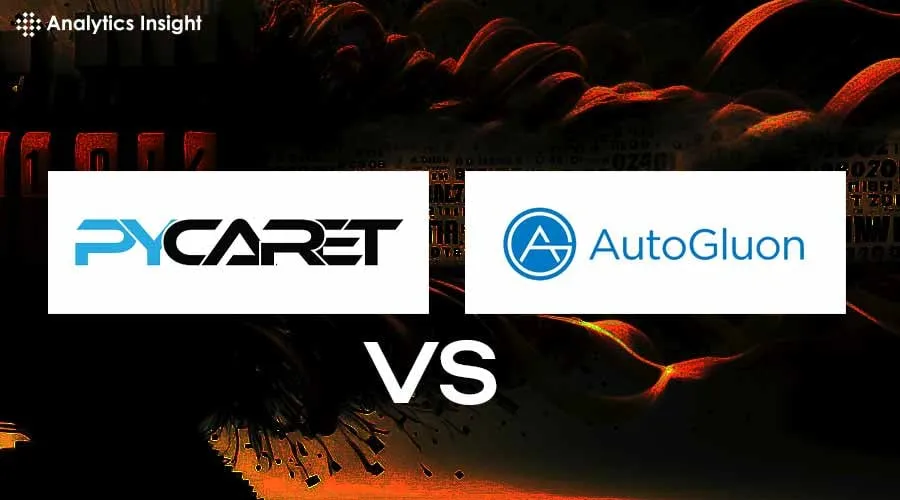AutoGluon vs. PyCaret: A Deep Dive into AutoML Frameworks

Overview of AutoGluon
AutoGluon is an open-source AutoML framework developed by AWS. It aims to simplify machine learning workflows with minimal code. AutoGluon focuses on automating model selection, training, and hyperparameter tuning. It offers a flexible interface, allowing users to integrate models into production environments quickly. The framework supports a wide range of machine learning tasks. Users can build models for classification, regression, and object detection. Additionally, AutoGluon is well-suited for deep learning, making it a strong candidate for complex projects. Its flexibility in handling both traditional and deep learning models sets it apart.
Overview of PyCaret
PyCaret is another popular AutoML framework. It offers a simple, low-code environment for machine learning tasks. PyCaret is designed to speed up model development without sacrificing performance. Its intuitive interface appeals to beginners and experts alike. The framework supports a variety of tasks, including classification, regression, and clustering. One of the strengths of PyCaret is its ease of use. It provides extensive documentation and built-in features that guide users through the entire model-building process. For those new to learning machines, PyCaret is a great starting point.
Ease of Use: AutoGluon vs. PyCaret
When comparing AutoGluon vs. PyCaret, ease of use is a key factor. PyCaret shines in this area with its intuitive interface and simple syntax. Even those with limited machine learning knowledge can use it effectively. PyCaret simplifies the process, offering predefined functions that streamline model training and evaluation. On the other hand, AutoGluon offers flexibility, but this comes with more complexity. Users may need to invest time in understanding its advanced features. However, once mastered, AutoGluon provides greater control over the modeling process, particularly for deep learning tasks.
Versatility Across Machine Learning Tasks
Versatility is where AutoGluon vs. PyCaret becomes interesting. AutoGluon stands out for its ability to handle a wide range of tasks, including traditional machine learning and deep learning. It excels in environments where diverse datasets and models are required. Its ability to support complex tasks such as object detection and image classification makes AutoGluon highly versatile. In contrast, PyCaret focuses on simplicity and speed. It offers enough features for most typical machine learning tasks but lacks advanced deep learning capabilities. However, PyCaret is versatile enough for small- to medium-sized projects and remains a popular choice for quick experimentation.
AutoGluon vs. PyCaret: Model Interpretability
Interpretability of model results is very important in machine learning. Thankfully, PyCaret makes interpretability a priority. The framework includes inbuilt tools for the visualization of results and the explanation of the models, which helps the user understand how the models make decisions. AutoGluon, on the other hand, focuses more on automation and performance. While it does offer some support for interpretability, its real strength is in delivering very optimized models. The price for AutoGluon's superior performance, however, is reduced transparency into how a model actually makes its decisions.
Customization and Flexibility
Customization, finally, is another area AutoGluon proves to be successful. It lets advanced users have the flexibility of further tuning models while trying out various configurations. Due to fine-grained hyperparameter tuning, you have control over all modeling aspects. That makes AutoGluon perfect for teams pushing the boundaries of model optimization. PyCaret is not as flexible as AutoGluon, but it compensates with ease of use. It is more structured, and most of the tasks are set up here with little configuration.
Performance: AutoGluon vs. PyCaret
In terms of performance, AutoGluon appears to perform much better than PyCaret during application cases where complex models are required. The optimization of deep learning models provides the tool with the best usage in large projects. AutoGluon performs exceptionally well in complicated datasets while ensuring high accuracy is achieved. Although it does not shine in competitions, it produces good results in simple day-to-day tasks. This functionality of PyCaret is very appealing to smaller projects due to decent results and very little effort.
Deployment and Integration
Another significant aspect is deployment. AutoGluon appears to be far more production friendly. It supports AWS, which makes it possible for users to deploy directly to the cloud. This is quite suitable for enterprises in search of scalable solutions. PyCaret also supports deployment, although its features are limited. It is pretty good for rapid deployment in smaller applications and does not compete with the same level of integration that AutoGluon has provided.
Community and Support
Both AutoGluon and PyCaret have active communities, although PyCaret has far more extensive documentation as well as tutorials. Beginners are thus easily guided on where to start and how to troubleshoot issues. The community at PyCaret provides one with all the support needed to navigate the framework. Also, the community size of AutoGluon is much smaller and still growing backed by AWS. The documentation is much more technical and geared to more advanced users.
Cost and Accessibility
Both AutoGluon and PyCaret are open-source libraries, so they are accessible to anyone. But AutoGluon uses more computations because it is based on deep learning. PyCaret can be run on less powerful hardware and offers a lean version, so it's more accessible to teams that have fewer resources.
This article was prepared using information from open sources in accordance with the principles of Ethical Policy. The editorial team is not responsible for absolute accuracy, as it relies on data from the sources referenced.